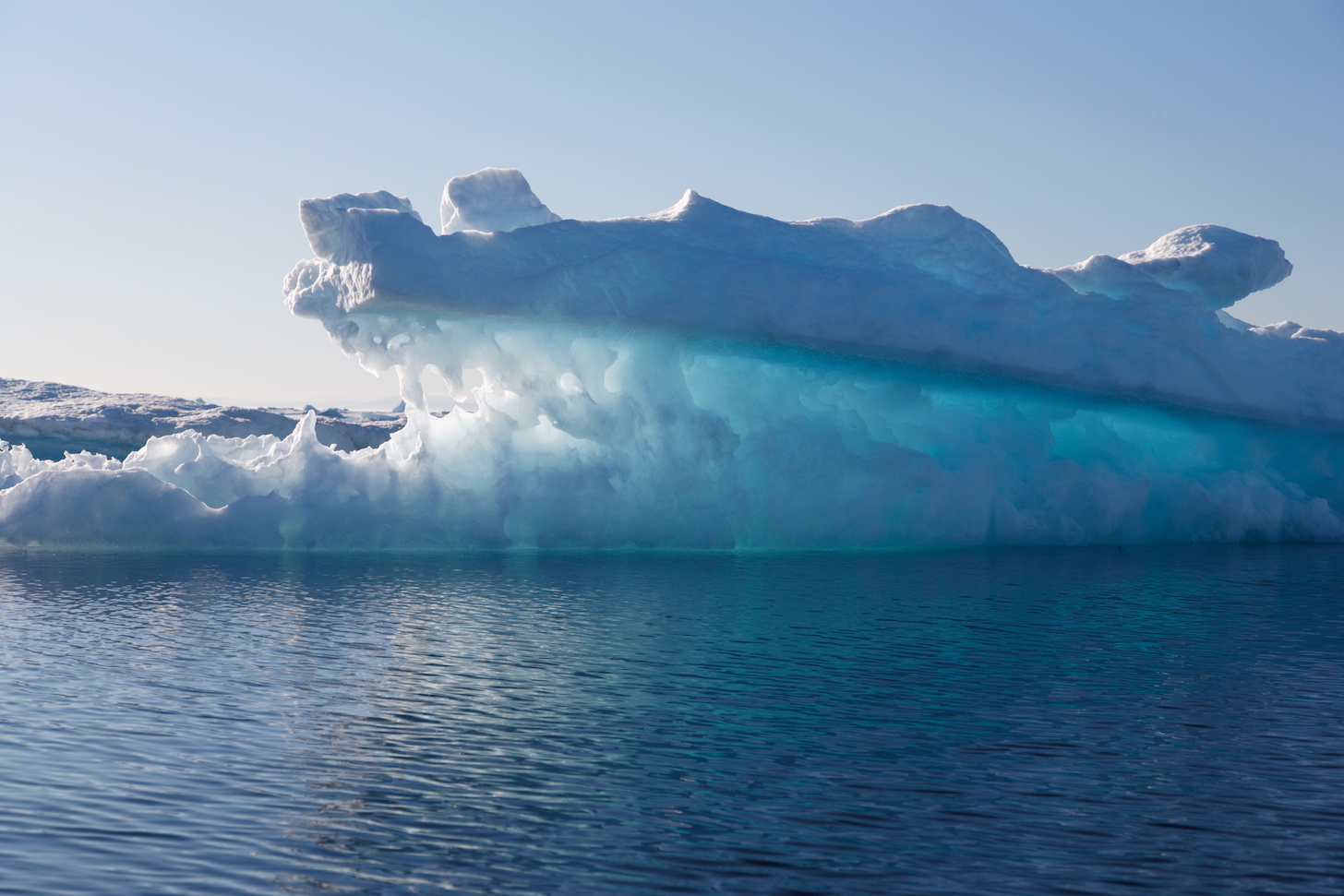
Greenland ice sheet melting impacts global ocean currents
An unprecedented study has revealed the long term impact of the thinning Greenland ice sheet. Ocean data shows an increase in freshwater which will change the ecosystems of Greenland’s fjords and could ultimately alter ocean circulation patterns across the planet.
The rate at which Greenland’s ice sheet is melting has more than doubled since 2003. Researchers from Aarhus University set out to determine how the melting ice affects coastal waters in Northeast Greenland.
In coordination with the “Greenland Ecosystem Monitoring Program,” the researchers took annual measurements over a time period of 13 years. The measurements showed that fresh water from the ice sheet had accumulated in the surface layers of the ocean and flowed into the Greenland fjords.
The monitoring took place in Young Sound and in the ocean waters surrounding Young Sound. The analysis found that the surface water layers contained up to 1.5 per mil less saline during the observation period. This means that freshwater content jumped from approximately 1 m in 2003 to almost 4 m in 2015.
Some of the freshwater originates from melting of the Greenland Ice Sheet north of the Young Sound and is carried by the ocean current along the eastern coast of Greenland. From the ocean, the freshwater flows into the inlets where it alters local circulation and impacts the production and structure of the ecosystems.
For example, the additional fresh water makes it harder for the nutrient-rich bottom water to rise to the surface layers where the plankton algae depend on sunlight for productivity in the summer months. Plankton algae provide the foundation for all sea life, which means that lower production of algae will result in a lower production of fish.
Greenland, the world’s largest island, is heavily dependent on fishing, which constitutes about 88 percent of its exports.
The researchers pointed out that ice is melting at an even faster rate in southern and western Greenland. They warned that the effects may be far more dramatic in those regions compared to what they have observed in Young Sound.
The increased melting of the Greenland ice sheet will accelerate rising sea levels and may ultimately impact global ocean currents including the Gulf Stream, an Atlantic Ocean current that brings warm air to Europe. The research is published in the journal Scientific Reports.
—
By Chrissy Sexton, Earth.com Staff Writer













